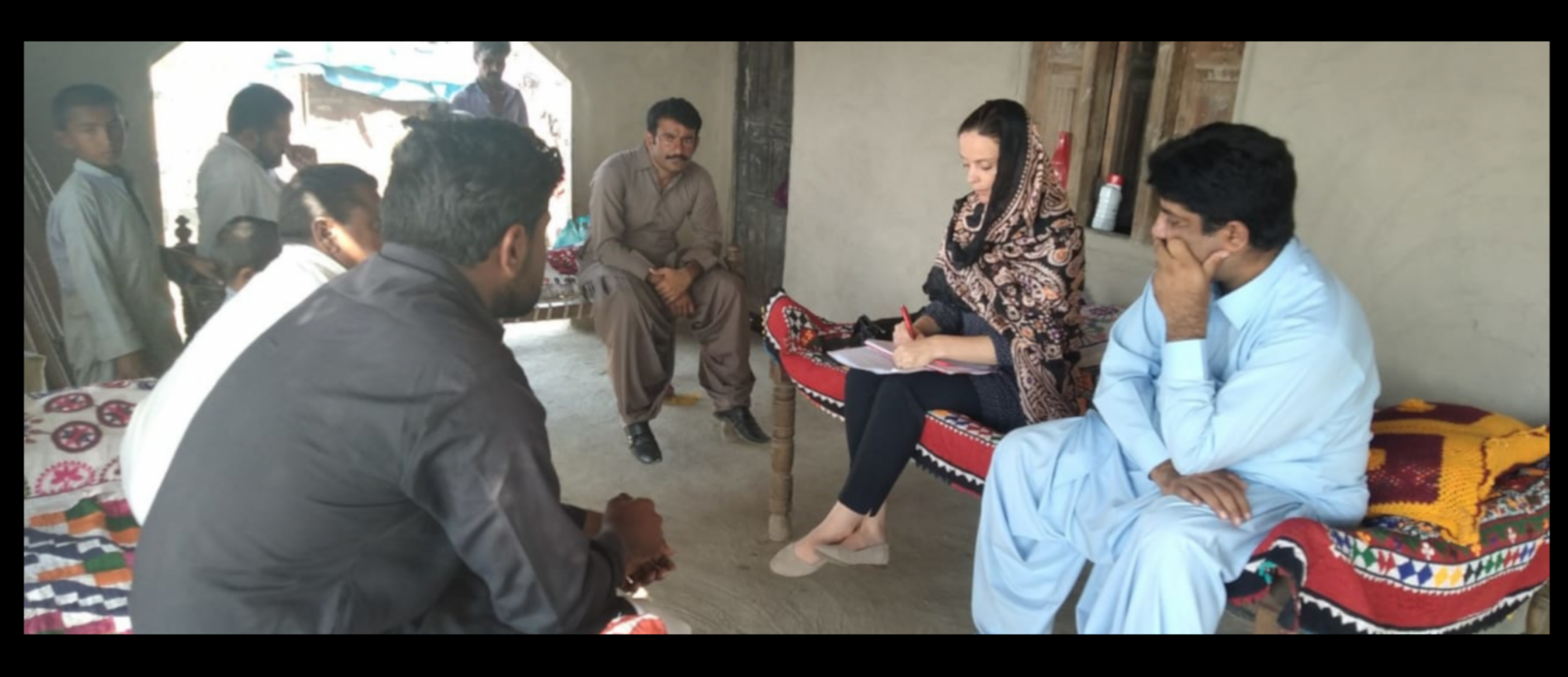
Submitted by K.L. Hlaba on Tue, 07/04/2020 - 17:25
In 2019, PhD student Dorien Braam conducted some of her fieldwork in Pakistan with the support of the Cambridge Global Food Security Early Career Researcher Travel Fund. Find out more about her field trip, how she collected information, and her thoughts on conducting international research trips.
I am from The Netherlands, where I studied architecture at the Delft University of Technology. Subsequently, I worked in a variety of roles across Asia, Eastern Africa and Europe with the United Nations, international non-governmental organisations (INGOs) and The Netherlands government. I focused on disaster displacement, human rights and shelter in those roles, before returning to academia via a Masters degree in International Animal Health at the University of Edinburgh. I started my PhD in Veterinary Medicine in 2018, funded by the Gates Cambridge Scholarship. I study the prevalence of zoonoses - diseases transmitted between animals and humans - in displaced populations, and plan to submit my thesis in 2022. I applied to the University of Cambridge because of its PhD course structure, the research interests of my supervisor, and the availability of resources.
I study the risk of zoonotic disease transmission in displaced populations, addressing some of the most pressing global challenges of the next decades: climate change, displacement and emerging infectious diseases. Disease transmission between wildlife and livestock, the increased risk of zoonoses in areas where people and animals with weakened immune systems live closely together, and the emergence of infectious diseases among native host communities are areas that need to be increasingly researched. Gaining a better understanding of disease prevalence and dynamics, and control and prevention, will improve the well-being of both humans and animals, with the aim of influencing and improving institutional responses.
My research is important to food security because, besides providing food in terms of meat and dairy products, livestock is an important asset to subsistence farmers. They use the animals for draught power, and their manure to support agriculture. The loss of livestock in displacement may result in a lower nutritional status, with direct implications to human health.
The Early Career Researcher Travel Fund award contributed to my fieldwork in Sindh province in Pakistan. I worked together with the Planning and Development Department, Research and Training Wing of the Government of Sindh, the National Rural Support Programme (NRSP), and the WWF to identify and interview communities affected by disaster displacement to determine their (animal) health risks. Preliminary findings were shared with the Research and Training Wing to inform policy development and livestock responses in displacement. This was with the aim of securing livelihoods, food supply, and nutritional status.
I use a qualitative case study methodology, consisting of semi-structured interviews with experts in health, livestock and disaster management, as well as households in affected communities. These interviews are supported by (grey) literature reviews and secondary quantitative data. In this area that lacks primary data and research, I find that my methodology and subsequent analysis using a grounded theory approach works well.
One of my main challenges is that there is little awareness and evidence available regarding zoonoses. Stakeholders often work in silos, and actors in health and displacement rarely include the facilitation of livestock during human movement. I found that structuring the interviews around three separate but interlinked thematic areas of health, livestock and the actual displacement helps with organising thoughts and supports the analysis.
I will use the data collected from Pakistan as a chapter in my thesis. Meanwhile, I am currently preparing for additional fieldwork in Jordan and Bangladesh, after which I hope to be able to provide a more comprehensive overview of zoonotic disease transmission risks in different displacement situations.
Before moving to Cambridge, I worked as researcher for a global research consultancy that I co-founded. I am keen to continue conducting research at both practical and academic levels once I finish my PhD.
I am very grateful to all the people who helped me during my fieldwork in Sindh. Their support and input have been invaluable in being able to interpret interviewees responses and understand better the challenges faced by communities, as well as those faced by authorities and humanitarian organisations.
I believe it is most important to ensure in-depth knowledge on the country, location and communities that you are planning to study. For instance, I chose Pakistan because I was able to build upon an extensive network of friends and colleagues I made when I lived there previously. I would advise all researchers to establish local connections who can provide support.
Please find Dorien's profile on our website.
Photo supplied by Dorien Braam (second from right, first photo).

